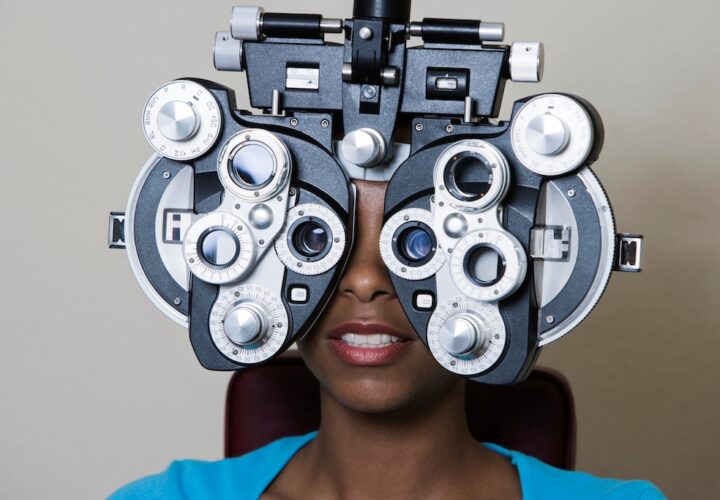Wondering how to prevent Alzheimer’s? Delaying the onset of Alzheimer’s disease by just five years would cut the number of clinically affected people by as much as fifty percent. Alzheimer’s may be a disease that has no cure, but science is examining lifestyle changes that may impact when people first experience symptoms of the disease and help us learn how to prevent Alzheimer’s. Being Patient spoke to Banner Alzheimer’s Institute’s Pierre Tariot, one of the researchers leading a study of a Colombian family who has a genetic predisposition to Alzheimer’s disease, on how to prevent Alzheimer’s with lifestyle changes.
- Lifestyle factors can decrease the risk of getting Alzheimer’s disease
- Researchers are looking at ways to block amyloid protein to prevent the onset of the disease
- High-risk group important for prevention research
How to Prevent Alzheimer’s: Lifestyle Changes
Being Patient: What do we know about how to prevent Alzheimer’s?
Pierre Tariot: It’s increasingly looking like lifestyle variables may increase or decrease risks. So, to oversimplify it a bit, if you want to do something to decrease risk now for your own future brain health concerns, live a heart-healthy lifestyle. It looks like that might really reduce the risk of symptoms of memory and thinking difficulty emerging later on.
Being Patient: Exercise, eat olive oil – those types of things?
Pierre Tariot: Yeah, blood pressure, blood sugar, lipids, don’t smoke, watch your weight. Aerobic exercise might be number one, actually, on that list. If I didn’t say “don’t smoke” three times, don’t smoke. They are all important issues and may become dominant in the future as more of these so-called diet and lifestyle studies are done. At the Alzheimer’s Prevention Initiative the Banner Alzheimer’s Institute is taking, we want to look at people who have normal memory and thinking ability, but who are at very elevated or even certain risk of developing symptoms of Alzheimer’s soon and see if we can stave that off.
Being Patient: If we don’t know what causes Alzheimer’s disease, how do you approach prevention? We know the plaques, tangles and inflammation all play a role. So, where do you start?
Pierre Tariot: We chose to start in people that have normal memory and thinking ability but are at 100 percent certain risk of developing Alzheimer’s disease, and dying from it unless something else happens. People who carry these disease-causing mutations, and usually they’re afflicted at a young age, so that’s the first study that we have started, in Colombia, South America, with Francisco Lopera and colleagues. We are looking at a treatment that blocks a protein called amyloid, which is misprocessed as a result of this genetic mutation. So, that study has completed enrollment; it’s going well. And we’ll get answers in a few years.
We’re also looking at people with no problems with thinking yet, who are at elevated risk, either because [they possess] ApoE4, two copies profile, or they have one copy of the ApoE4 and a biomarker showing that this amyloid is dysregulated. We’re going from a small number of rare, certain risk people, a larger, but still smallish number of people at very elevated risk, a much larger number of people at elevated risk, and using experimental therapies that block the expression of this bad protein called amyloid.
Being Patient: We know, in part, beta-amyloid does have value to our entire biological system, but something goes wrong. So when you’re thinking about prevention, is there concern, that, blocking this would have another side effect?
Pierre Tariot: In the subsequent study, in the [Apo]E4 homozygous (two copies,) as we call them, we’re looking at two treatments. One is an immunotherapy that can remove bad amyloid. The other treatment that we’re looking at is something that blocks the production of pathological amyloid. But you’ve hit on an important but little-talked-about point. How much do you want to block the production of amyloid late in life? We don’t know. It’s possible, if not likely, that we need some amyloid processing to occur. The theory is that amyloid expression may have more of a role early in the development of the nervous system. It may be even later in life it’s doing something. So, a lot of thought goes into, just exactly how much to block that production.
How to Prevent Alzheimer’s: Understanding Your Genetic Risk
Being Patient: Talk to me a little bit about the Colombia study in particular. We know this is a group that is highly genetically predisposed.
Pierre Tariot: They carry one of the early onset disease-causing mutations that, unless you die young from some other reason, you will die from Alzheimer’s disease in your 40s and 50s.
Being Patient: So, when you have such a group that is so genetically predisposed to this disease, what does that mean in terms of your approach for prevention?
Pierre Tariot: It’s a great question because what if we’re all lucky? And then, in partnership with Dr. Lopera and his team and the families in Colombia, we show that we can stave off symptoms in this genetically-induced form of Alzheimer’s disease … That, at least, provides very concrete evidence that, at least, for that form of Alzheimer’s, anti-amyloid therapy works. And that would strongly support additional anti-amyloid therapies in other, more common forms of Alzheimer’s disease that are not caused by a genetic factor. So, that’s why the next layer we’re looking at is anti-amyloid, but in people without certain risk (they’re at vastly elevated risk of getting symptoms but not 100 percent certain) we know that, in these people who carry two copies of the ApoE4 gene, that amyloid does play a role.
Being Patient: If this does work, if the anti-amyloid therapies do work to prevent Alzheimer’s disease, what does that look like? Is it a pill you take? What’s the result?
Pierre Tariot: In the Colombian study, we’re using a biological agent that’s given as an injection. In the generation program, we’re looking at an active immunotherapy that’s given as an intramuscular shot every few months, or a once-a-day pill.
Understanding the Role of Inflammation in Knowing How to Prevent Alzheimer’s
Being Patient: I have heard people talk about prevention and say, “Well, if you just prevent your body from inflammation; if you take anti-inflammatories, then that could lead to a preventative method for the disease.” What is your belief on that?
Pierre Tariot: My personal view is that inflammation is going to be a key actor in the unfolding of the disease process. Unfortunately, no anti-inflammatory therapy that’s been looked at, for people who already have symptoms or people who don’t have symptoms but are at risk because of age and family history. No way that they’ve been studied has any benefit been convincingly shown, including a prevention study that I was part of some years ago. So, to me, that suggests that we need a better understanding of how to attack inflammation.
Being Patient: In the Colombian study, you’re dealing with people who tend to get early onset Alzheimer’s. They’re getting it earlier. Do we know a difference in the way that the disease presents itself in terms of the early-onset versus the later onset?
Pierre Tariot: By and large, how people change in terms of thinking and memory and functioning over time and how the disease expresses itself with changes you see under the microscope, for instance, look very similar in genetically determined and late-onset folks, but it’s frame-shifted about 30 years earlier.
Being Patient: Tell me a little bit about the time frame on this. I’ve spoken to researchers who have said, “OK, by this year it is our goal to solve Alzheimer’s, to find a cure.” In terms of the spectrum, or your goals for prevention, perhaps, using the Colombia study as an example. In how many years can we expect to have some insight into the prevention?
Pierre Tariot: Enrollment closed in February of 2017. We have publicly said that there will be some sort of interim analysis and the details are confidential. We’ve publicly said that we will end treatment approximately five years after the last person was enrolled. So, the worst case scenario is, we get answers in 2022.
This interview on how to prevent Alzheimer’s has been edited for clarity and length.




